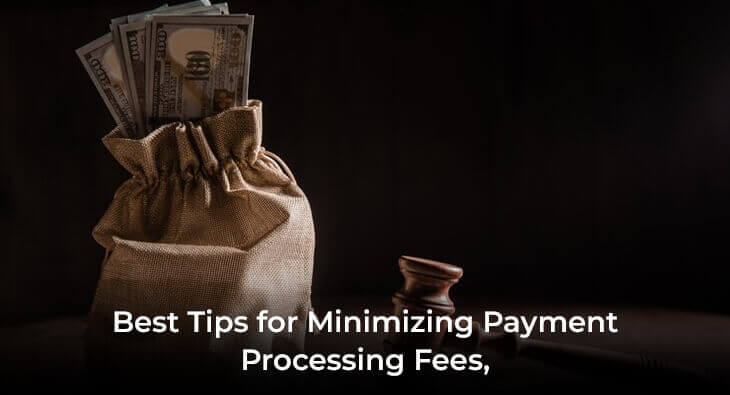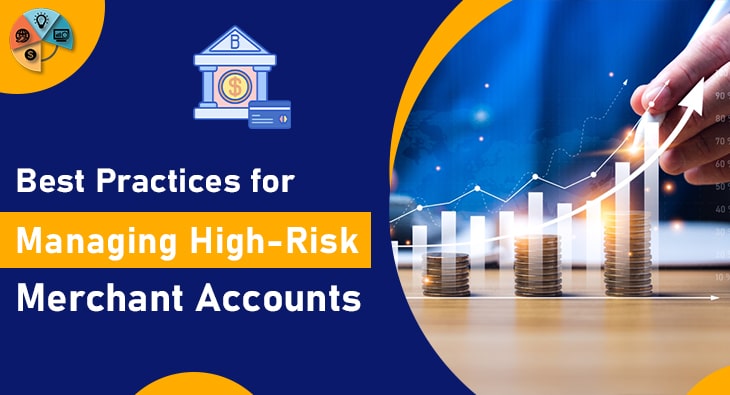Nowadays, consumers are shifting toward cashless transactions as their most popular method of payment. According to the Federal Reserve Bank of San Francisco. Debit and credit cards accounted for just under half of the transactions made in the year 2021 (51 percent). This has had a significant impact on merchants who have to set up payment gateways in order to payment processing. They should also be able to deal with the difficulties that are associated with the processing of payments.
What is a Processing Fee?
Processing fees are essentially service charges that are paid to cover the cost of overhead and the risks associated with transactions with credit cards. To better understand how the fees are calculated. Take an instant look at the actual process of an actual credit card transaction.
The simple act of accepting a credit card is actually an intricate, multi-step procedure with many parties.
When a client makes a payment using a credit card then the company’s merchant gateway system sends the information. About the transaction to a processor that processes payments and transmits the information to the association which provided the card (such as Visa or MasterCard). The card association is referred to as which bank issued the card.

The bank can either approve or deny this transaction and the final decision goes through the chain of processing to the place of purchase. When the purchase is accepted, the seller gets an authorization number to conclude the sale. Should the sale be rejected the buyer must have to present another form of payment.
All this takes place in seconds due to the sophisticated processing systems. That connect merchants to card associations as well as issuing banks via Merchant account processors or merchant accounts (which typically are part of the same organization, like with Merchant Stronghold).
While the process may be slightly more complicated. And the actual process of payments doesn’t take place until the debits and credits are issued between institutions in order to move funds around. This comprehensive overview should explain how fees operate.
Interchange Rates vs Processing Fees.
Fees can be wildly different depending on a variety of variables. However, in the majority of cases, they comprise two primary elements which are the interchange rate as well as the processing cost. Interchange rates are a non-negotiable cost that is paid by the issuer of credit cards in order to pay for the network’s infrastructure as well as credit risk. Processing fees often referred to as processor markups. Pay to the merchant’s account providers or the payment processor to link the merchant with the card networks.
Similar to exchange rates, they pay for the cost of infrastructure as well as credit risk, however, unlike interchanges, they’re generally negotiated and vary from one provider to the next. These fees are mostly fixed in relation to overhead costs.
However, they can also be adjusted to account to take into account the risk. The manner in which transactions are processed is an element. In-person transactions are typically regarded as less risky for fraud than card-not-present (CNP) transactions (such as telephone, online, or mail-order purchases).
Every transaction where your credit card’s number has to be entered in typically has more of an interchange rate. Credit cards with PINs offer safety from fraud and also avoid association fees for credit cards and are therefore eligible for a lower rate of interchange. The merchant’s classification plays a role in determining the issuer’s interchange fees. Every company is issued the four-digit code for merchant category (MCC) which can be used to categorize it into specific industries to facilitate tax reporting.
This is also the method that issuers of banks use to determine the risk level each company represents. Some industries have been classified as “high risk” This indicates a higher possibility of chargebacks. Returns that could result in the risk of liability. Merchants with high risks are usually charged more interchange fees to cover these risks.
Related Blog
- Best Tips for Minimizing Payment Processing Fees
- Merchant Account And Secure Payment Gateway
- How to Start a CBD Business: Directing About CBD Industry
- Ways to know about your restaurant transaction business fees
- Sell Your Custom Nutraceutical Supplements Online
How Payment Processing Fees Affect Your Business.
As merchants, you’re generally accountable for other’s expenses within the chain of credit card processing. Since interchange rates cannot be negotiated. Your choice of processor can have a significant effect on how much you actually pay for each transaction. It is important to know the fees your processor charges to help you make. The most informed decision to maximize the amount of revenue you earn.
A reliable payment processor must always disclose what charges are assessed and when. Beware of any additional charges. That is added as monthly expenses like fees for customer service hosting charges for POS systems or charges for access to networks. Processors with a questionable reputation often attempt to conceal fees by making them. Part of an unbundled or tiered pricing model that establishes certain requirements for different transactions. And then charges different fees according to the level of transactions. This can cut off your profits and make it hard to make decisions according to your processing needs.
5 Tips for Minimizing Payment Processing Fees.
Due to the effect that fees can have on your company, it’s always an excellent idea to consider methods to avoid or reduce the impact of these fees. While some processing costs can be avoided, there are ways to reduce them.
1. Accept Cards in Person When Possible
2. Require a Minimum Amount for Credit Card Sales
Each transaction comes with processing costs. Therefore an excessive amount of low-volume transactions can quickly add up significant amounts of fees. Setting a minimum amount of purchase for sales made with credit cards. This can reduce the number of fees However. There are some legal considerations to take into account.
Federal law allows merchants to impose up to a minimum of $10 for credit card transactions. However, they must treat every card with the same considerations (so there is no minimum of $10 to use American Express, which has higher interchange rates. Or the minimum is $5 to Visa). Credit cards, however, could be restricted to different regulations, based on the issuer. So make sure to check with your payment processing to determine how much freedom you can have with making minimums.
![]()
Email us anytime!
Email customer service 24/7
![]()
Call us anytime!
Reach customer care 24/7 at +1 (727) 330-3944
3. Limit Chargebacks with a Credit Card Authorization Form
A chargeback is when a client is unhappy with a transaction from your business and then asks the provider of their card to reverse the charge. High-risk companies typically experience an above-average amount of chargebacks. Because of what they do in their business (it’s an important main reason why they are classified as high-risk businesses in the first place). One strategy to limit chargebacks is to utilize an authorization form for credit cards. It’s a document that is signed by the client which allows you to charge their account. This document increases the chances of winning the chargeback. Case with the issuer of the card and reduces the total number of chargebacks. That your business faces in order to keep your processing charges lower.
4. Use an Address Verification Service (AVS)
AVS is among the best and most effective methods for stopping credit card fraud. An AVS will require customers to input their addresses when they complete the payment procedure.
After the transaction has been completed. The address is compared against the address in the file with the bank that issued the credit card. Companies that have implemented AVS for their platforms of eCommerce are often eligible for lower exchange rates offered by credit card issuers.
5. Find a Better Payment Processor
Some payment processors engage in fraudulent behavior that forces companies to keep up with unnecessary. Reserve requirements for high reserves and pay a variety of fees for services. That a reliable processor ought to offer in their core services. High-risk merchants typically face huge obstacles. When establishing the Processing of credit cards since the processor could need to satisfy certain specifications. If you are negotiating with an online payment processor. Be sure to verify how their fee structure is structured. And if they deduct any portion of transactions in order to satisfy the reserve requirement.
Reduce Your Payment Processing Fees with Merchant Stronghold
At Merchant Stronghold, we believe that transparency should be a core business value when it comes to payment processing services.
That’s why our merchant payment gateway delivers versatile credit card processing to high-risk merchants with no reserve requirements or hidden fees. We give you plenty of ways to make payments faster and grow your business. To learn more about our payment processing services, contact a member of our team today that shows just how much you could be saving with Merchant Stronghold.


